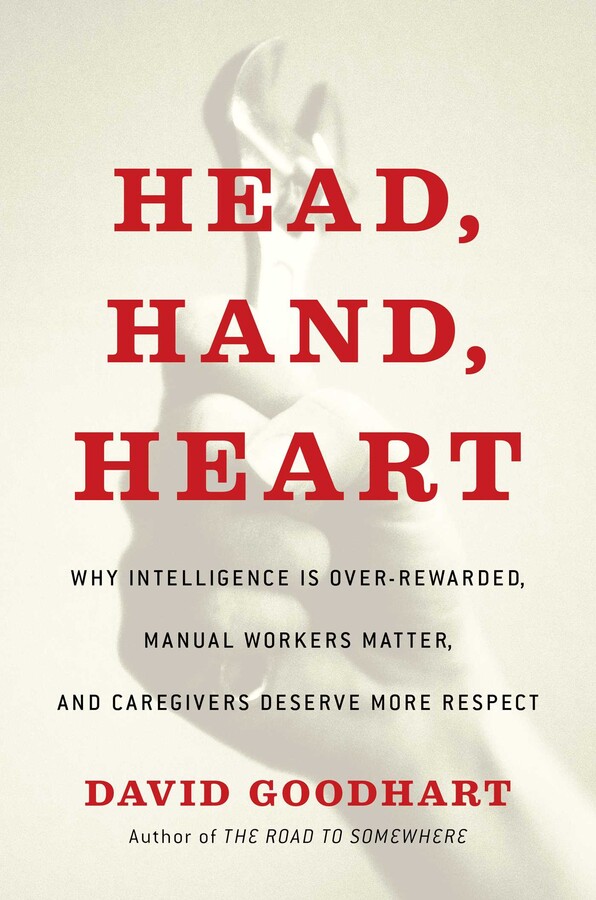What has gone wrong in rich, western countries? Political polarization. A weaker sense of common interest. Disappointed expectations, including among the college-educated mass elite. A rising tide of depression and loneliness. A crisis of meaning.
Nearly 70m Americans voted for Donald Trump after four years of experiencing him in power. That speaks to a high degree of alienation in one of the richest and freest societies on earth. Even before the Covid-19 crisis struck there was a mood of despondency in our politics – a sense that losers were outnumbering winners in nations buffeted by invisible global forces, that the public realm was being slowly poisoned by social media, and that mainstream politics was failing to satisfy a widespread yearning for belonging and purpose in mainly Godless western countries.
There’s an overarching explanation for many of these discontents that is hiding in plain sight. In recent decades in the interests of efficiency, fairness and progress western democracies have established systems of competition in which the most able succeed and too many of the rest feel like failures. And who are the most able? People with higher levels of cognitive ability, or at least those certified as such by the education system.
One form of human aptitude, cognitive-analytical ability – the talent that helps people to pass exams and then manipulate information efficiently in their professional lives – has become the gold standard of human esteem. And those with a generous helping of this aptitude have formed a new kind of expanded cognitive class – a mass elite – who now shape society, and do so broadly in their own interests.
How is this different from the past? Seventy years ago, just after the Second World War, when we lived in somewhat less complex societies, the people who ran government and business were generally brighter and more ambitious than the average – as they still are today. What’s different is that, back then, skills and qualities other than cognitive-analytical intelligence were held in higher regard. Education had not yet emerged as the main marker of social stratification. In the 1970s most people in rich societies left school with no qualifications at all and as recently as the 1990s many professional people lacked university degrees.
There have, of course, been many advances in freedom for women and ethnic and sexual minorities since the 1970s but something has been lost too. We now have a much narrower idea of what it is to be a successful person: do well at school, go to a good college then on into a respected and well-paid professional career. And there is only one ladder up into this zone of safety and success, the modern university. There used to be lots more little ladders and promotion from below for capable people who had not done well at school, something that now happens much less because you need a college degree before you can think about getting a decent professional job.
In the language of political cliché, the ‘brightest and the best’ today trump the ‘decent and hardworking’. Qualities such as character, integrity, experience, common sense, courage and willingness to toil are not irrelevant but they command relatively less respect. And when such virtues count for less it can contribute to what conservative critics call a ‘moral deregulation’ in which simply being a good person is not valued, and it becomes harder to feel satisfaction and self-respect living an ordinary, decent life, especially in the bottom part of the income spectrum.
Without us really noticing it, something fundamental has got out of kilter. In the language of the book I have just written—Head, Hand, Heart: The Struggle for Dignity and Status in the 21st Century—the cluster of aptitudes around Head cognitive abilities have sucked status away from the still vital Hand and Heart occupations done by the majority of people.
It is too early to tell whether the Covid-19 crisis will contribute to a better balance. But we need one. The three sets of aptitudes overlap to differing degrees, but the modern knowledge economy has produced ever rising returns for Head workers, who are highly qualified academically, and reduced the relative pay and status of much manual/technical Hand work. At the same time, many aspects of caring and emotional Heart work, traditionally done mainly by women in the gift economy of the family, continue to be undervalued even as care work has become an increasingly critical part of the public economy and was so widely applauded (literally) at the height of the crisis.
An economic and social system in rich countries that once had a place for a range of aptitudes and abilities – in the skilled and semi-skilled jobs of the industrial era, on the land, in the military, in the church, in the private realm of the family – now favours the cognitive classes and the educationally successful.
Of course, high intelligence is as useful today as ever. We need teams of highly intelligent and academically trained researchers to find a vaccine for Covid (as has just been achieved), to find a way of sucking carbon out of the atmosphere, and generally to create new knowledge in everything from science and technology to social science and historical research. But we also need the practically-skilled technicians to manufacture the vaccine, to operate the carbon capture and storage facilities, and to support the activities of research scientists and engineers by building and running much of the equipment they use to do their research.
In any case most academically trained people are not creating new knowledge and there is nothing special about most lower level cognitive jobs. Moreover, there will be fewer such jobs in the future and more jobs in care and technical functions requiring less of an academic training and more emotional and practical intelligence.
Indeed, we are now reaching what I call ‘Peak Head’, as it turns out the knowledge economy doesn’t need so many knowledge workers after all. This will become even more evident when AI starts to eat into the millions of middling and lower level cognitive jobs. We can already see signs of it in the high number of college graduates in non-graduate jobs.
When I started writing my book I thought the idea of spreading status more evenly between Head, Hand and Heart was idealistic even a bit new-agey! By the time I finished I was convinced it was inevitable if our growing number of old people are to be well cared for and the machines that govern our lives are to be properly maintained.
I was giving a talk recently to a group of US community organisers and one of them complained that the idea of the dignity of labour now has a depressingly old-fashioned ring to it. But it is due a come-back. This is related to what Arianna Huffington calls the Fourth Instinct, the need for meaning and connection. We all need to feel respected and useful, and if the only kind of work that is regarded as making a full contribution is cognitive work it creates mass demoralisation.
The push back against the winner-takes-all meritocracy takes many forms, including sometimes ugly populist ones. But look at Republican Florida backing a high minimum wage and remember the public recognition of the vital role of the mainly non-college graduate “key workers” at the height of the pandemic. There is more than one scale of human worth. A better balance is coming.

HEAD, HAND, HEART: Why Intelligence Is Over-Rewarded, Manual Workers Matter, and Caregivers Deserve More Respect, by David Goodhart, Published 9/08/2020, Simon & Schuster / Free Press.


